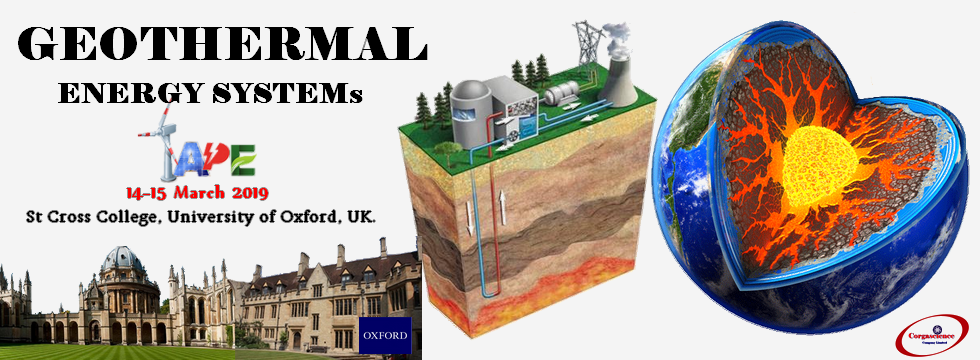INVITED PLENARY SPEAKERS
IAPE'19 Invited Plenary Speakers
We have the pleasure to introduce our invited plenary speakers
Prof. Jiří Jaromír Klemeš
Editor-in-Chief, Journal of Cleaner Production, Elsevier
Sustainable Process Integration Laboratory – SPIL, NETME Centre,
Faculty of Mechanical Engineering, Brno University of Technology –
VUT Brno, Technická , Czech Republic

Head of “Sustainable Process Integration Laboratory – SPIL”, NETME Centre, Faculty of Mechanical Engineering, Brno University of Technology - VUT Brno, Czech Republic and Emeritus Professor at “Centre for Process Systems Engineering and Sustainability”, Pázmány Péter Catholic University, Budapest, Hungary. Previously the Project Director, Senior Project Officer and Hon Reader at Department of Process Integration at UMIST, The University of Manchester and the University of Edinburgh, UK. Founder and a long-term Head of the Centre for Process Integration and Intensification – CPI2, University of Pannonia, Veszprém, Hungary. Awarded by the EC with Marie Curie Chair of Excellence (EXC). Track record of managing and coordinating 93 major EC, NATO and UK Know-How projects. Research funding attracted over 23 M€. Co-Editor-in-Chief of Journal of Cleaner Production and Chemical Engineering Transactions, Subject Editor of Energy and Emeritus Executive Editor of Applied Thermal Engineering. The founder and President of 21 y of PRES (Process Integration for Energy Saving and Pollution Reduction) conferences. Chairperson of CAPE Working Party of EFCE, a member of WP on Process Intensification and of the EFCE Sustainability platform.
He authored and co-authored over 400 papers, h-index reaching 47. A number of books published by Elsevier,Woodhead, McGraw-Hill; Ashgate Publishing Cambridge; Springer; WILEY-VCH; Taylor & Franci). Several times Distinguished Visiting Professor at Universiti Teknologi Malaysia and University Technology Petronas, Malaysia; Xi’an Jiaotong University; the South China University of Technology, Guangzhou and Tianjin University in China; University of Maribor, Slovenia; the Brno University of Technology and the Russian Mendeleev University of Chemical Technology, Moscow. Doctor Honoris Causa of Kharkiv National University “Kharkiv Polytechnic Institute” in Ukraine, the University of Maribor in Slovenia, University POLITEHNICA Bucharest, Romania. “Honorary Doctor of Engineering Universiti Teknologi Malaysia”. Awarded with “Honorary Membership of Czech Society of Chemical Engineering", "European Federation of Chemical Engineering (EFCE) Life-Time Achievements Award" and "Pro Universitaire Pannonica" Gold Medal.
Climate change, as well as smog/haze, are crucial environmental challenges of our time. Carbon emissions footprint is a key environmental accounting tool for business managers, policy makers and non-governmental organisations attempting to identify mitigation measures that reduce the threat of climate change. The society is increasingly engaged in carbon emissions footprint as a part of policy development and product design. Footprints have reached worldwide popularity, and the environmental issues they are addressing become increasingly diverse, such as climate change and smog/haze issues (Greenhouse gas including Carbon emissions footprint), freshwater use (water footprint), land use (land footprint), material use (material footprint). Footprints are an important tool for development and assement of the circular economy. Industry's contribution to the achievement of sustainable development, engage the challenge of providing competitive results and products in the short term while trying to protect and preserve natural and human resources in the long term. Sustainability requires human society to develop a strategy that accepts and understands its responsibility towards living conditions and environment both in regional and worldwide level. A very important for research achievements is wide international collaboration, cross-fertilisation and exchange of results. Sustainability issues global, especially dealing with greenhouse gases the joint effort is evidently key issues. However, they are some legal aspects to be deal with: Patenting and copyright law, intellectual property rights. Those issues are even more restricting when the research is proprietary and industrially funded. The legal, economically viable and mutually acceptable ways should be searched. One option is collaborative research and co-funding, which is the case of the European Community funded project. Another valuable tool is agreements as Memoranda of understanding and Contractual collaboration agreements facilitating networking.
Acknowledgement
This research has been supported by the EU project “Sustainable Process Integration Laboratory – SPIL”, project No. CZ.02.1.01/0.0/0.0/15_003/0000456 funded by EU “CZ Operational Programme Research, Development and Education”, Priority 1: Strengthening capacity for quality research.
Prof. Soteris Kalogirou
Editor-in-Chief, Renewable Energy, Elsevier
Professor at the Department of Mechanical Engineering and Materials Sciences and Engineering
Cyprus University of Technology, Limassol, Cyprus

Professor Soteris Kalogirou is at the Department of Mechanical Engineering and Materials Sciences and Engineering of the Cyprus University of Technology, Limassol, Cyprus. He received his HTI Degree in Mechanical Engineering in 1982, his M.Phil. in Mechanical Engineering from the Polytechnic of Wales in 1991 and his Ph.D. in Mechanical Engineering from the University of Glamorgan in 1995. In June 2011 he received from the University of Glamorgan the title of D.Sc. For more than 30 years, he is actively involved in research in the area of solar energy and particularly in flat plate and concentrating collectors, solar water heating, solar steam generating systems, desalination and absorption cooling. Additionally, since 1995 he is involved in a pioneering research dealing with the use of artificial intelligence methods, like artificial neural networks, genetic algorithms and fuzzy logic, for the modelling and performance prediction of energy and solar energy systems.
He has a large number of publications as book chapters, international scientific journals and refereed conference proceedings. Until now, he received more than 10000 citations on this work and his h-index is 51. He is Editor-in-Chief of Renewable Energy and Deputy Editor-in-Chief of Energy, and Editorial Board Member of another eleven journals. He is the editor of the book Artificial Intelligence in Energy and Renewable Energy Systems, published by Nova Science Inc., co-editor of the book Soft Computing in Green and Renewable Energy Systems, published by Springer and author of the books Solar Energy Engineering: Processes and Systems, and Thermal Solar Desalination: Methods and Systems, published by Academic Press of Elsevier. He has been a member of World Renewable Energy Network (WREN) since 1992 and is a member of the American Society of Heating Refrigeration and Air-conditioning Engineers (ASHRAE), Institute of Refrigeration (IoR) and International Solar Energy Society (ISES).
More invited plenary speakers to be confirmed!






